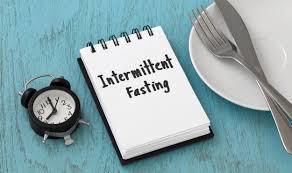
At Tulsi Wellness Club in San Diego, our functional doctors are dedicated to providing valuable insights into how various wellness practices can support your health throughout different life stages. One topic of growing interest is intermittent fasting and its potential benefits for women experiencing perimenopause. This transitional phase can bring about a range of physical and hormonal changes, and understanding how intermittent fasting might fit into your wellness plan is crucial. In this article, we explore the relationship between intermittent fasting and perimenopause, offering guidance on how to incorporate this approach into your lifestyle.
Understanding Perimenopause
Perimenopause is the transitional period leading up to menopause, typically occurring in women in their 40s or early 50s. During perimenopause, the body undergoes significant hormonal changes as ovarian function declines. Common symptoms include:
- Irregular Menstrual Cycles: Changes in the frequency and flow of menstruation.
- Hot Flashes and Night Sweats: Sudden feelings of warmth and sweating, often disrupting sleep.
- Mood Swings: Emotional fluctuations and irritability.
- Weight Gain: Particularly around the abdomen.
- Sleep Disturbances: Difficulty falling or staying asleep.
These symptoms can impact daily life and overall well-being, making it important to explore supportive lifestyle strategies.
What is Intermittent Fasting?
Intermittent fasting (IF) is an eating pattern that alternates between periods of fasting and eating. Unlike traditional diets that focus on what to eat, intermittent fasting emphasizes when to eat. Common methods include:
- 16/8 Method: Fasting for 16 hours and eating within an 8-hour window.
- 5:2 Method: Eating normally for five days a week and restricting calorie intake on two non-consecutive days.
- Eat-Stop-Eat: Fasting for 24 hours once or twice a week.
Potential Benefits of Intermittent Fasting During Perimenopause
Intermittent fasting may offer several potential benefits for women navigating perimenopause:
-
Weight Management: Weight gain is a common concern during perimenopause due to hormonal changes. Intermittent fasting can help regulate calorie intake and may support weight loss or maintenance by reducing overall calorie consumption and improving metabolic health.
-
Improved Insulin Sensitivity: Perimenopause can impact insulin sensitivity, contributing to weight gain and metabolic issues. Intermittent fasting has been shown to improve insulin sensitivity, which can help manage blood sugar levels and support overall metabolic function.
-
Reduced Inflammation: Chronic inflammation is associated with many perimenopausal symptoms. Intermittent fasting may help reduce inflammation and support a healthier inflammatory response, potentially alleviating some of the discomforts associated with perimenopause.
-
Enhanced Hormonal Balance: Although intermittent fasting primarily affects metabolic health, some studies suggest it might influence hormonal regulation. This could potentially help manage symptoms like hot flashes and mood swings, though more research is needed in this area.
-
Improved Sleep Quality: Sleep disturbances are a common issue during perimenopause. Some evidence suggests that intermittent fasting can improve sleep patterns, which may help mitigate nighttime symptoms such as hot flashes and insomnia.
How to Incorporate Intermittent Fasting During Perimenopause
If you are considering intermittent fasting as part of your perimenopause management strategy, here are some tips for incorporating it into your lifestyle:
-
Consult with a Healthcare Provider: Before starting intermittent fasting, consult with a healthcare provider or a nutrition expert. They can help you determine if intermittent fasting is appropriate for you, considering your health status and individual needs.
-
Choose the Right Method: Select an intermittent fasting method that aligns with your lifestyle and preferences. The 16/8 method is often popular for its simplicity, but other methods may work better depending on your schedule and goals.
-
Focus on Nutrient-Dense Foods: During eating windows, prioritize nutrient-dense foods that support overall health. Include a variety of fruits, vegetables, lean proteins, whole grains, and healthy fats to ensure balanced nutrition.
-
Stay Hydrated: Drink plenty of water throughout fasting periods to stay hydrated. Herbal teas and water with lemon can also be beneficial.
-
Monitor Your Symptoms: Pay attention to how your body responds to intermittent fasting. Keep track of any changes in symptoms, energy levels, and overall well-being. Adjust your approach as needed based on your observations and feedback from your healthcare provider.
-
Combine with Other Wellness Practices: For optimal results, combine intermittent fasting with other supportive practices such as regular physical activity, stress management, and adequate sleep.
Conclusion
Intermittent fasting may offer valuable benefits for women navigating the challenges of perimenopause, including weight management, improved insulin sensitivity, and reduced inflammation. At Tulsi Wellness Club in San Diego, we are here to provide you with the knowledge and support needed to make informed decisions about your health and well-being.
If you are interested in exploring intermittent fasting or have questions about how it may fit into your perimenopause management plan, reach out to Tulsi Wellness Club today. Our team of experts is dedicated to helping you achieve optimal health and navigate this transitional phase with confidence and vitality.
Dr. Klea Doko
Contact Me


